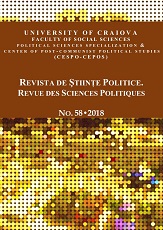Management of Learning Time and Free Time Education for Students
Management of Learning Time and Free Time Education for Students
Author(s): Ecaterina Sarah FrăsineanuSubject(s): School education, Higher Education , Evaluation research, Sociology of Education
Published by: Editura Universitaria Craiova
Keywords: time; students; management; learning; efficiency;
Summary/Abstract: Current paper presents various ways for a good time management in academic learning, having as a prerequisite that it is an abstract resource, hard to control it, but with an essential impact on student life. In general, the modern man is increasingly busy, with a gap between the number of activities he wants to accomplish and the ability to accomplish them timely, without stress. Along with passing from high school and higher education, young students find themselves in a position to restructure their way of using the time resource and also other related resources, thus becoming more organized, with an impact on the practical accomplishment of activities. In the case of academic environment, for the students involved in the educational process, the sources of stress are either at the level of learning context: people in the close group or certain teachers, the membership in several groups, the competition with the equals, the tense relations with the decisionmakers, the changes at the level of the system, institution, various events in the social life, or at the level of learning activity itself: the nature of tasks, their volume, their difficulty, the existence of deadlines, the limitations, the learning conditions, the unjustified rules and habits, the ambiguity of roles, their attributions. Our analyzes highlight the internal and external causes of the non-productivity, and the application of certain solutions, techniques and tools only works in an individualized way, by applying metacognition. Planning, performing actions, checking and adjusting results are the main stages of selfmanagement. Therefore, the study seeks to outline several efficient action principles that are useful both for learners and for trainers/guidance practitioners. Consequently, we advocate for quality leisure time education, which is currently an important axis of personal development by regenerating, compensating or developing bio-psycho-social functions.
Journal: Revista de Științe Politice. Revue des Sciences Politiques
- Issue Year: 2018
- Issue No: 58
- Page Range: 118-127
- Page Count: 10
- Language: English

